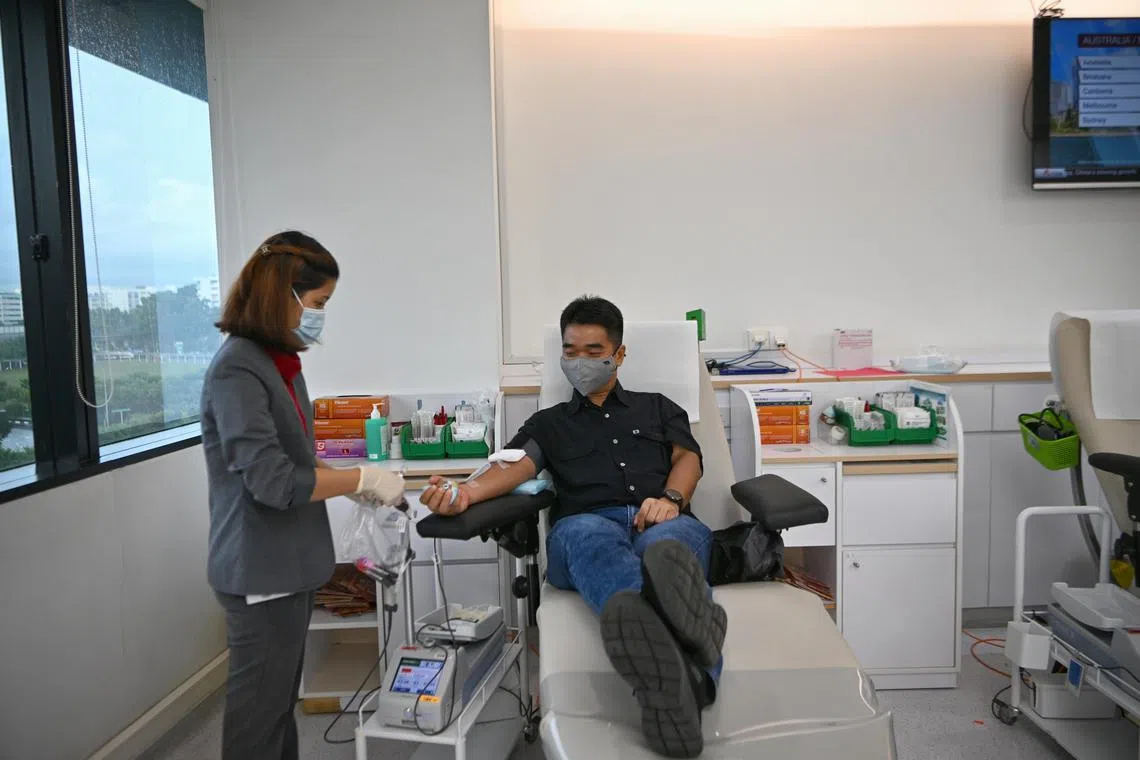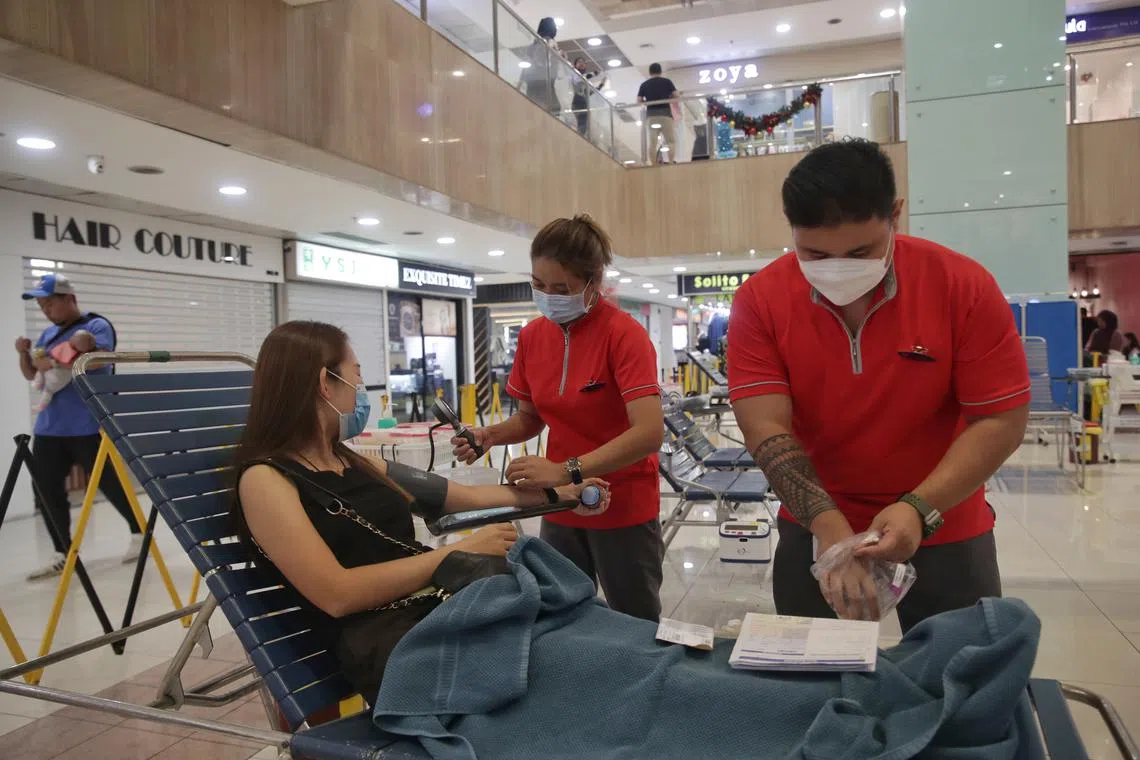More asked to defer donating blood after they travel overseas with borders reopening
Sign up now: Get ST's newsletters delivered to your inbox

Regular donor Fauzi Djauhari, who frequently travels for work, said he was turned away from giving blood in 2017 after a trip to Batam.
ST PHOTO: ARIFFIN JAMAR
Follow topic:
SINGAPORE – About a quarter of prospective donors did not meet the criteria to give blood in October and November this year, with more people now travelling overseas.
There is the risk of catching some infections that can be transmitted through blood transfusion.
The number of donors unable to donate blood due to travel history has tripled since the reopening of borders, said the Singapore Red Cross (SRC), the Republic’s national blood donor recruiter.
This group now accounts for about 10 per cent of the total number of donors who did not meet the donation criteria, it added.
SRC did not say how many donors there were in October and November.
There were 69,032 donors in 2021, according to figures from the Health Sciences Authority (HSA).
“Travelling to certain countries or regions in some countries with insect-borne infection risks may make donors ineligible to donate blood for a period of time,” said an SRC spokesman.
“For instance, people who have visited a malaria-endemic area – such as Batam, Bintan, India and Cambodia – for more than 24 hours, have to wait for at least four months before they can donate,” the spokesman added.
Those who have gone to areas with risk of West Nile Virus transmission, which include Greece, the United States and Canada, have to wait 28 days to donate blood after returning to Singapore.
Donors are advised to visit the HSA’s website at www.hsa.gov.sg/travel_criteria
Regular donor Fauzi Djauhari, who frequently travels around the region for work, said he was turned away from giving blood in 2017 after a trip to Batam.
The 44-year-old solution consultant said he accepted the restrictions as part of the conditions of donating blood.
“I can always wait rather than take the risk,” said Mr Djauhari, who donated blood up to four times a year prior to the Covid-19 pandemic.
Besides travel, the main reason for donors being turned away is low haemoglobin levels.
That makes up about 62 per cent of such cases.
Female donors must have a haemoglobin level of at least 12.5g per deciliter (dL), while males must have at least 13.0g/dL.
Those with low haemoglobin levels due to iron deficiency should have a balanced diet with iron-rich food, and should also complete the full course of iron supplements provided by the blood banks after donating blood.
This is especially important for those who donate more than once a year, the SRC said.
Those who have dengue fever can donate blood only six months after a full recovery, while people who have recently contracted Covid-19 can only do so at least 28 days after first testing positive.
The SRC encourages all healthy individuals to make an appointment to donate blood, regardless of blood group.
It warned that the Republic’s blood stocks may dip by as much as 20 per cent during the year-end school holidays, when fewer people donate blood.
“More people are travelling during this period with the easing of the borders. We would strongly encourage donors to make an appointment to donate blood before their travels to keep our blood stock healthy,” said the SRC.
On Saturday, student-led initiative Project Blood SG held its fifth blood donation drive at Far East Plaza, with some 100 people turning up to give blood.
The group, which is supported by SRC, aims to encourage blood donations among youth here.

Some 100 people turned up to give blood at the blood donation drive held at Far East Plaza on Saturday.
ST PHOTO: GIN TAY
What you need to know about travelling and giving blood
Travelling to different regions may make you ineligible to donate blood for some time.
For example, malaria is endemic in some parts of South-east Asia.
Visitors to these countries can donate blood if they visited a non-endemic or malaria-endemic area during the day but did not stay overnight.
However, those who stayed overnight in a malaria-endemic area must wait at least four months after leaving the area before donating blood.
This is what you need to know about giving blood after travelling to some popular destinations.
Malaysia
The HSA notes malaria is present in rural areas but not in Kuala Lumpur or Penang state.
Thailand
Malaria-endemic areas include the Plai Phraya district of Krabi and Surat Thani.
Other regions – including Phuket, Chiang Mai and Bangkok – are considered non-endemic, and visitors can donate blood upon returning to Singapore.
India
Malaria is endemic throughout almost the entire country, including in cities such as Mumbai and Delhi.
US
West Nile virus – a mosquito-borne disease which can cause life-threatening ailments such as encephalitis in extreme cases – is found in many areas of the US, particularly between July and October.
Visitors to affected areas must wait at least four weeks after leaving to donate blood.

